Nate and Rachelle Dell serve the long-reclusive Waorani people of Ecuador’s eastern Amazon Jungle. Rachelle’s unique connection with them opens otherwise sealed doors. Nate’s skills provide them with practical ways to meet the 21st century’s onslaught. Their combined ministry paths demonstrate God’s long-term plan in action. I recently had the opportunity to interview this delightful, diligent couple. I think you’ll enjoy meeting them.
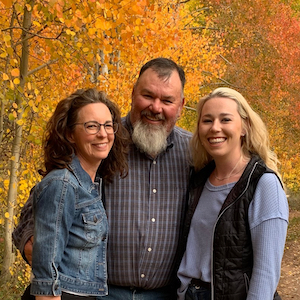
How did you meet Jesus?
Rachelle: Well, I was raised in a Christian home on the mission field, but I have a very clear memory. I was probably five years old, sitting in a hammock by the cooking fire. We lived in Tiweano, a Waorani village [in Ecuador’s Amazon jungle]. My mom asked me if I wanted to pray to ask Jesus into my heart, and I said yes. That was how I met Jesus.
Rachelle, was there a time later when you realized more fully what surrender meant?
Rachelle: I would just say it was a daily thing for me, but it made quite an impression on me when I was young, and I can remember how my prayer life really took off. I was young, but it just became a conversation with the Lord that just grew over time, little by little.
Nate: I was probably five or six, and a missionary came to our church. He gave an altar call, and I remember going forward in answer to that call. But I remember, later, revisiting that commitment. I made a big decision to get serious about my faith. That happened when I was in late middle school, probably 7th or 8th grade. Our pastor gave some more teaching, and I made some really direct decisions to follow Christ. That’s when I got baptized and kept going from there.
What was your early life like?
Rachelle: I was just learning to walk when we moved to Ecuador, out to Waorani territory, close to a year and a half. We started out in the village of Tiweno and then moved to other villages. The first ten years of my life were out in Waorani territory. That was all I ever knew until age 10. We would spend six months in the village, take a break at the missionary base, Limoncocha, for a month, then return to the village.
Then, we went to Dallas, TX, where the SIL (Summer Institute of Linguistics) base is. My dad was the Anthropology Coordinator there for a couple of years before we moved to Colorado. We started out in Granby, Colorado, at a guest ranch there and then moved to Kremmling, where my folks then started their own guest ranch.
What about school?
Rachelle: When we were in the village, my mom tutored me and kept all three of us kids up to speed with the missionary schools in Limoncocha. When we were at Limoncocha, we would jump into school there. When we went to Dallas, we were thrown into the US school system. From then on, I just went through public school.
Nate: I was born and raised in Kremmling, Colorado, which is a little ranching town in northwest Colorado. My dad was a schoolteacher. He was a vocational-arts and shop teacher. I went through the public school for 12 years in that same system. I think I had 26 in my graduating class, so it was a small public school. That was all I knew. There wasn’t much homeschooling going on, and there wasn’t a Christian School in our area, so that was the only option.
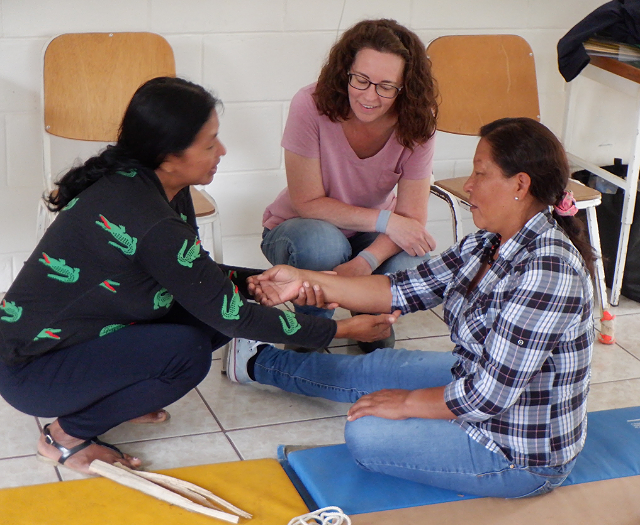
How did you know you were called to ministry?
Rachelle: Right before we graduated from college—we were already married—we were looking into going to Mongolia. I can’t remember the timeline…
Nate: It was in the early 90s. The Iron Curtain had just gone down. I had been to Urbana and heard a guy screaming out over the crowd, “I want people to go to Mongolia. That’s a new mission field that just opened up. Come and talk to me!” He was really pushing for Mongolia. I always joke that there are two things about Mongolia. One, there are more horses than people, so it can’t be all bad, right? And two, they’re famous for the three manly arts: wrestling, archery, and horseback riding. So, it’s got to be a good place. But we didn’t end up there. God must have known I wasn’t manly enough.
Rachelle: So, the doors closed on that. We had just graduated college, and my dad was coming down to Ecuador on a consulting trip. He said, “You haven’t been back for thirteen years. I know the Waorani people would love to meet Nate, so why don’t you guys come down as your graduation gift? So we came down here in 1995. We went to several villages, but when we got to Tzapino, which had been one of our home bases when I was growing up, they called the meeting. Back in the 90s, the Waorani didn’t do meetings, so that was really odd. They called this meeting, and everybody came to the school. They sat us down and started talking to Nate and me. They said, Kigi [Rachelle] and Menga [Nate], we want you guys to come back and live with us. We want Menga (Nate) to do this, this, and this. They had a list of at least five vocational skills they wanted to learn—fixing chainsaws, carpentry…
Nate: How to build longer-lasting houses…
Rachelle: Yeah, longer-lasting houses. So, they had a big list for him. And then they turned to me with a list for me.
Nate: Some of it was spiritual, Bible…
Rachelle: Some of it was spiritual, yeah. So, we left there, and I can remember being in the plane flying over the broccoli [the rainforest resembles broccoli from the sky] and thinking, “I know too much. I know too much about how hard it is. I know about all the political issues here. Un uh, Lord, I don’t want to do this.” But he had closed the doors to Mongolia. It took me a while. The Lord worked on it, and I couldn’t deny that he was asking us to come to Ecuador. So, we ended up here.
Nate: During college, I was really involved with InterVarsity Christian Fellowship and went to the Urbana Missions conference, with a huge focus on missions. That was when I first started thinking about full-time missionary service. It was stirring us in our early years of marriage, the idea of being in ministry and being missionaries. I was ignorant about the jungle and knew nothing about what we were getting into with the Waorani—But we couldn’t deny that meeting [where] they sat us down was more than just them asking. It was God stirring in our hearts. It wasn’t just ‘please come and live with us.’ It was really God’s voice. As we look back on it, neither Rachelle nor I could deny that that’s what it was God stirring in us. That definitely was a turning point as we looked at missions and started directing our focus to Ecuador.
Tell me about how you two met and then your training.
Rachelle: Nate’s home church in Kremmling supported my parents on the field. My mom was expecting me when they first visited that church. My mom and dad stayed with Nate’s parents. Nate was a toddler at the time, so we joked that it was an arranged marriage. But we met later in high school and started dating, then dated through high school and college and finally got married.
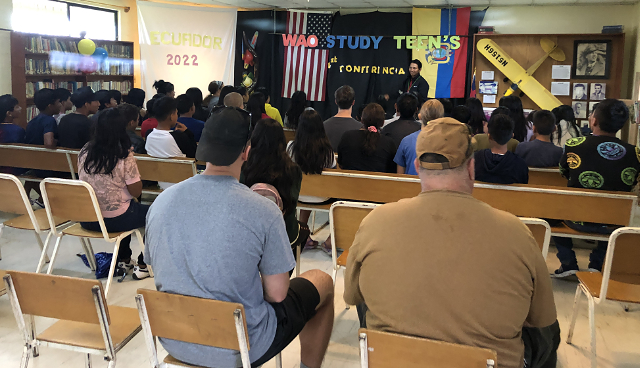
What college did you go to?
Nate: I went to Colorado State University, and Rachelle went to Seattle Pacific University for a year. Then, the Seattle Pacific vocal teacher said Rachelle should apply for a choir scholarship, so she transferred to CSU in her second year and joined the choir. That was my fault. I dragged her down to the low, state school degree where I studied. This is probably a good indication of how confused I am. I started my schooling at CSU as a civil engineer. But when I got into calculus, I said, “This is not gonna work. I hate calculus and don’t like anything I’m studying.” So, I went on a tour of the majors. I never officially changed my major from engineering but tried all kinds of things, such as landscape architecture, psychology, geology, and art. I ended up in English Lit with the idea of being a teacher. Then we got married. We were young and broke, and I found out I could graduate with just a degree in English Lit without finishing my teaching certification. So, I went to work with my carpentry skills and started earning money while Rachelle finished school. That kept us out of debt. And then, Rachelle, you studied biology and anatomy.
Rachelle: Yeah, I did the sciences.
Nate: She just stayed the course. She was always into biology and was fascinated with medicine. So, I graduated from CSU in 1993, then you finished in 1995.
Rachelle: Yep.
It’s a bit ironic, Rachelle, that you, being so skilled in music, are working with the Waorani. who have what, three notes in their scale?
Rachelle: They have five notes. I did study ethnomusicology and analyzed their music system. They sing in fifths, which is very dissonant to our Western ears. Nowadays, they like to sing outside songs, and sometimes you can recognize them. But they only have about 18 songs total in their songbook. And we sing almost all of them every single Sunday.
What does your current ministry look like?
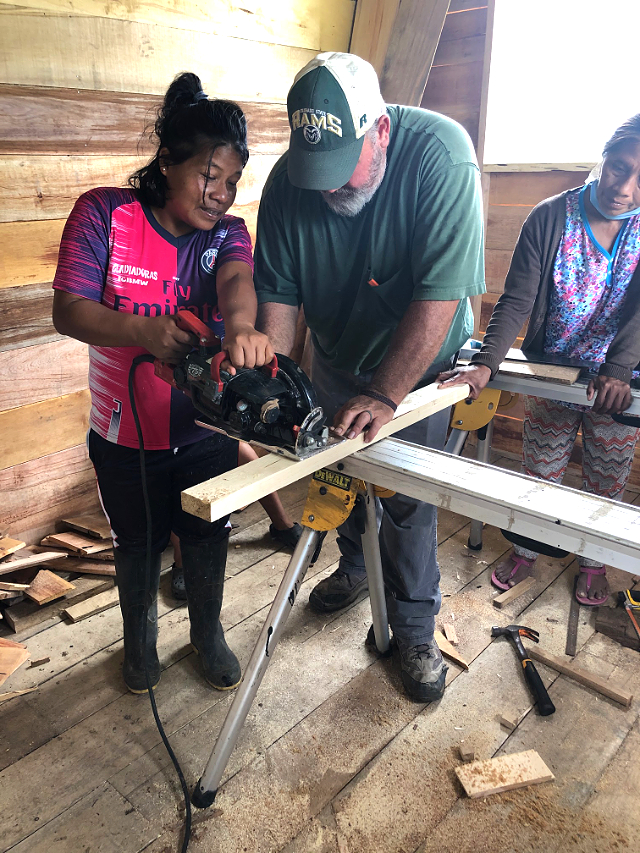
Nate: OK. We are now building an indigenous training center program. The goal is to provide vocational and spiritual training for the empowerment of the indigenous people of the Amazon rainforest in Ecuador. We are still very connected with the Waorani people, so most of our focus right now is on that. I do a lot of just very practical things to help the folks. You know anything from, “Hey, somebody jimmied my padlock, and I can’t lock my house.” Or “My chainsaw quit working, and I don’t know what to do.” Or “My shower pipes came apart. Can you help me fix them?”—those kinds of practical, vocational skills. We’re also trying to build programs that would teach those kinds of life skills and those kinds of new technologies, skills like how to maintain things, how to build things, how to put things together and take them apart as needed, and whatever kinds of things the people themselves define as something that could improve or better their lives. We’re trying to find willing people to come alongside us and help us by doing that. We aren’t experts in all those things, so the idea is to bring folks who have those skills at a higher level than mine. We’d like them to come down here and join in the fun.
Rachelle: And not just folks from the US…
Nate: Not just from the US, but also Ecuadorians and folks from all over the world who are interested in joining those kinds of efforts with the people of the Amazon. We also have, over the course of the last four years, started a church down here with some Waorani leaders. We find ourselves in a shepherding role alongside, not over, the Waorani pastors and leaders. We’re meeting with them on a regular basis and helping with that. Rachelle, you need to tell him about your work.
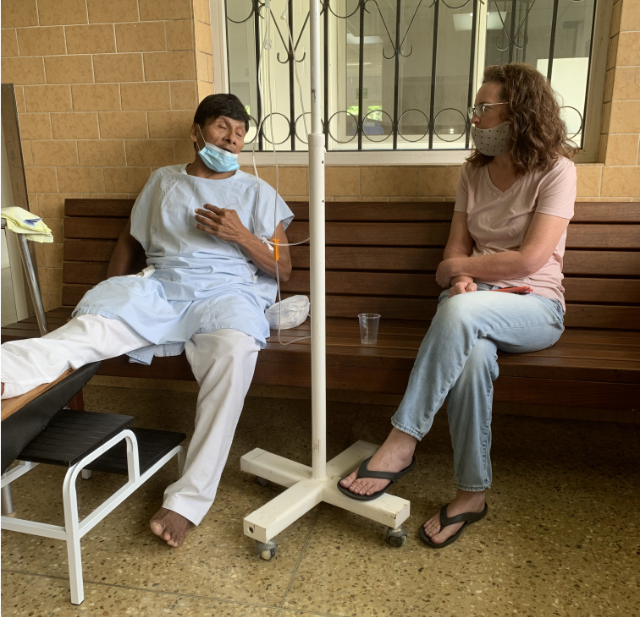
Rachelle: I also help with the training center here. One of the things that really strikes me is that clear back in the 1980s, the Waorani were already talking about these kinds of skills. They realized that they were going to need to transition into the “modern world” and that they didn’t have the knowledge or the understanding to make that transition well. So, this center is an answer to the long-held desire of the Waorani people. We hope to include other groups in that as we go along.
While Nate focuses more on vocational skills, I focus on other things. For example, a women’s self-defense class in response to the high level of domestic violence that happens down here. We invited the police to talk about the laws and what kinds of resources are available to the women. We had a lawyer come in and define for them what violence is, what is acceptable, and what is not acceptable in a relationship. That was eye-opening to them. We had a nurse come down and talk about health issues. Another gal came and helped the women share their stories of trauma with each other. The primary instructor was a martial arts gal who came down and taught them self-defense moves. We were trying to empower the gals and help them find some unity and solidarity in their struggles. As well as the vocational issues, we’re dealing with societal problems and spiritual issues. We just want them to find wholeness and thrive where they are. So, that’s what I do on the training course side.
I also do medical advocacy for the Waorani simply because I can translate for them between Waorani and Spanish. I help them navigate the medical system. I spend the majority of my time accompanying patients to the hospital or to get tests here or somewhere else. If need be, we will help raise funds for surgeries and other treatments.
What portion of that is out in the jungle, and what portion is in town?
Nate: There’s a large population [of indigenous tribes] that has moved into town for various reasons, education for their kids, or various work-related reasons. So, a lot of the issues like plumbing and things like that are now taking place here in Shell [town at the edge of the jungle]. But we’re trying to maintain, within the training courses, a focus on the jungle-dwelling indigenous. But we’re also realizing that we’re dealing with two different populations, the ones that are living out in the modern world here at the edge of the jungle and then those that are living inside the jungle still. The lines are getting fuzzier. They now have satellite internet in the villages. They are more connected to the outside world through their cell phones.
Rachelle: Which is causing a lot of these problems…
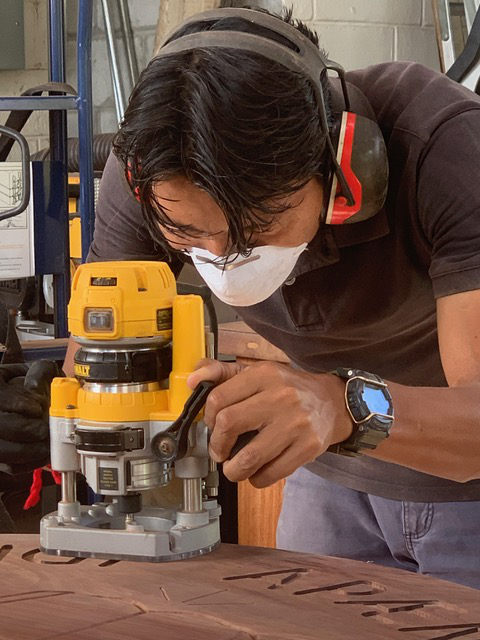
Nate: Yeah, which is actually causing a lot of the social breakdown. If you see it on the Internet, that’s how it must be in the outside world and must be okay to do. So those kinds of things are the same in the entire world, right? There’s a breakdown in the family, probably related to social media and the Internet, and then there’s a social upheaval in all sorts of traditional societies around the world because of the homogenization of the Internet culture. It’s a mixed bag, right? You can also watch a YouTube video on how to fix your stove. It’s a blessing and a curse no matter where you are. The inner character to develop to know how to use the Internet properly without getting yourself in trouble is a universal need now. Everybody has to learn that. The Waorani youths are especially rudderless and unprepared and, therefore, vulnerable to those kinds of influences from the modern world.
What attracted you to Paraclete?
Rachelle: Well, the people that we know in Paraclete…
Nate: Yeah, we knew a lot of good people in Paraclete, and that was one of the big attractions to us. Glen Volkhardt was our personnel director at one point while we were with Reach Beyond. So, we had interaction with him and then the McConnells, Scott, and Ulrike [Paraclete associates].
Rachelle: I actually love the name [Paraclete]. It tells me a lot about the people who are in it.
What advice would you give to someone thinking about missionary service?
Rachelle: Well, I would say it never hurts to get as much training under your belt as you possibly can. We spent two years in Graduate School preparing to come down here. And we have used every little bit of that.
Nate: We audited a bunch of classes at the graduate level with the Summer Institute of Linguistics and Wycliffe Bible Translators in prep to come down here. That was in two places: Eugene, Oregon, for two summers and then a year in Dallas at the Graduate Institute there. Rachelle studied ethnomusicology. And I studied anthropology and literacy, specifically for newly emerging minority language groups. So that was fun. We learned a ton.
Rachelle: You will never, ever regret having more of that kind of preparation. I feel it’s honoring the people that you’re going to work with. But it also helps you because it does ease some of the challenges.
Nate: I think Rachelle and I, especially in the last four years, have realized that there are multitudes of good things to spend your time doing. But the Holy Spirit’s only guiding you to do the things that He’s asking you to do. The big conundrum of missionary service is to figure out which of those things that are good things are really the things that God wants you to do. Those are the questions that we wrestle with every day. Which good thing should we say yes to? By saying yes to certain things, you’re saying no to other things. Trying to figure out the right thing that the Holy Spirit’s asking you to do is part of the magic of missionary service. It’s an amazing conundrum and part of the mystery of following Christ no matter what profession you’re in.

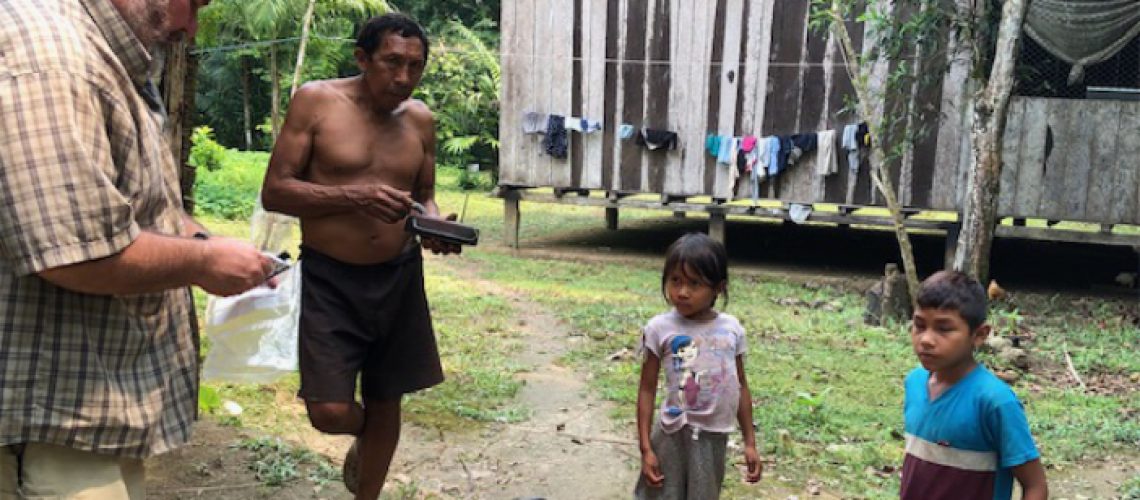
2 thoughts on “Bridging Centuries in the Jungle”
Great read here of missionary work in SA. Never tire of what God is doing around the world.
He does indeed do marvelous things that continually amaze us. Thanks for your comment.